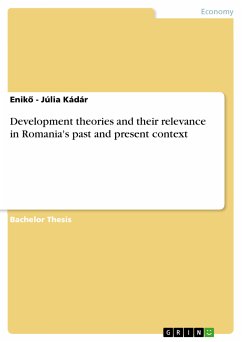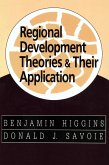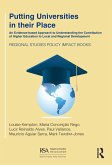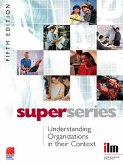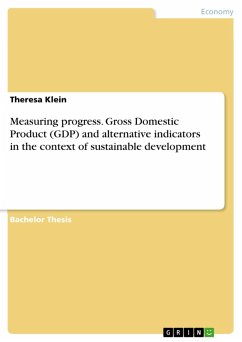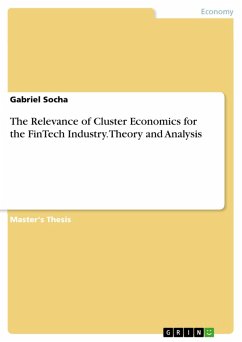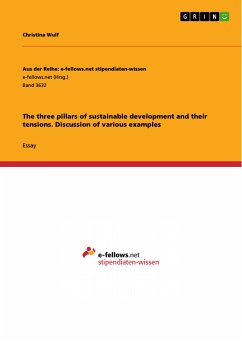Bachelor Thesis from the year 2018 in the subject Economics - Economic Cycle and Growth, grade: 10,00, Babe¿-Bolyai Universit, language: English, abstract: Although Romania is considered one of the fastest growing economies with favourable prospects for the future, the country is lagging far behind other European countries on issues such as the quality of healthcare and education systems, levels of corruption, macroeconomic stability, and environmental safety. The aim of this thesis is to provide an ensemble view of the factors that actually determine how advanced a country is by analysing the main Development Theories provided in the literature, and determining their significance in Romania's past and present context. This is done by first presenting each theory in detail, to ensure an understanding of the various dimensions and factors that should be taken into account in the assessment of any nation's level of development, followed by an examination - tailored specifically to Romania's context - of the four domains of sustainable development (economics, politics, society & culture, and ecology) through the consolidation of relevant statistical data and bibliographical information. The findings of the paper highlight the fact that Romania's overall development is not equivalent to its economic growth, as the latter does not necessarily reflect the population's welfare. For the country to be considered advanced from other points of view as well, authorities should not fail to recognize that attracting and retaining foreign investment, encouraging entrepreneurship, increasing the national budgets for education, health-care, and infrastructure improvement, tackling the serious, ongoing problem of corruption and lack of institutional transparency, and strengthening environmental awareness and independence are all factors that have an important role in defining Romania's current level of development, and in providing future generations with further opportunities.
Dieser Download kann aus rechtlichen Gründen nur mit Rechnungsadresse in A, B, BG, CY, CZ, D, DK, EW, E, FIN, F, GR, HR, H, IRL, I, LT, L, LR, M, NL, PL, P, R, S, SLO, SK ausgeliefert werden.

